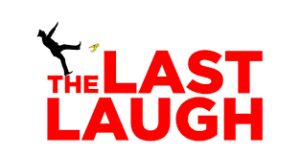By Abigail Dotterer || Staff Writer

I hardly knew what the Holocaust was the first time I heard a joke about it. The friend who laughed about Jewish people being shoved into ovens had to explain to me what happened and why it was funny. I didn’t laugh.
Joking about tragic events isn’t funny. It is awful to laugh at. They shouldn’t be socially acceptable. Show some respect to the survivors and the ones that didn’t make it. It isn’t funny. Don’t you know the number of how many people that died?
That is, at least, what I’ve thought for the longest time, especially when I hear 9/11 or Holocaust jokes. I didn’t see why comedians thought it was acceptable material for their skits. However, the screening of Ferne Pearlstein’s documentary, The Last Laugh, last week changed the way I looked at it all.
Overall, the 2017 film gets one to think about who is allowed to joke about the Holocaust and if even they are in the first place. While it is mainly focusing on the Holocaust, it touched on other sensitive topics like the AIDS crisis and 9/11.
For those in the entertainment industry, they all have varying degrees of which jokes are and aren’t allowed.
Filmmaker Mel Brooks says he can make Nazi jokes but not ones about the Holocaust. He says that he “can’t go there,” according to Sharon Edelson in her article Renee Firestone Has the Last Laugh, the article from which the following comments originated
To comedian Susie Essman, Brooks’ work with the topics of World War II and Nazism, she says, “by ridiculing the Nazis, he was taking away their power.”
“The Holocaust is not funny. But survival––there can be humor in that,” says actor Rob Reiner.
Comedian and actor Gilbert Gottfried was told that “tragedy plus time equals comedy.” For him, though, he says “why wait?”
“It’s important to talk about things that are taboo, otherwise they just stay in this dark place and they become dangerous,” Sarah Silvermann said.
As for survivors of the concentration camps, the same goes.
The main survivor that the film follows is Renee Firestone, a 92-year-old who experiences Auschwitz. According to Women’s Wear Daily Magazine, she clearly states her position by saying, “It’s OK to make fun of the Nazis, but not about the killing. Making fun of the Nazis is OK with me.”
One survivor in the film says, “without humor, I don’t think we would have survived.”
After the screening, there was a question and answer session with the director, Pearlstein. “It was really interesting, all of the cultural responses. In Germany, our European premiere…because of the war, because of different levels of free speech, you’re not allowed to laugh at a Holocaust joke there. I knew that before going in but didn’t know what to expect at the screening…it was silence during the Holocaust jokes… silence.”
As for her own stance on Holocaust jokes, Pearlstein said, “I’m not saying ‘yes it’s okay to make these jokes,’ no it’s not. I think it depends on who it is, who the audience is, what the intent is, what the context is–– that’s what I wanted everybody to know. It’s all of those things and then you decide, if it’s okay, for you.”
Pearlstein views her film, overall, as one about “bad taste” but in “good taste.”
Honestly, after years of not knowing how to react to these jokes because if you laugh, you can look like an awful person. If you don’t laugh, you just feel a bit awkward. After seeing this documentary, I really do have to go after what Pearlstein said– it all matters about the manner and intent.
Although, it will never be good for me to joke about somethings like this. That is why I would align myself with Brooks–– to be able to laugh and joke about Nazism but not the Holocaust, the deaths specifically.
First-year Abigail Dotterer is a Staff Writer. Her email is adottere@fandm.edu.